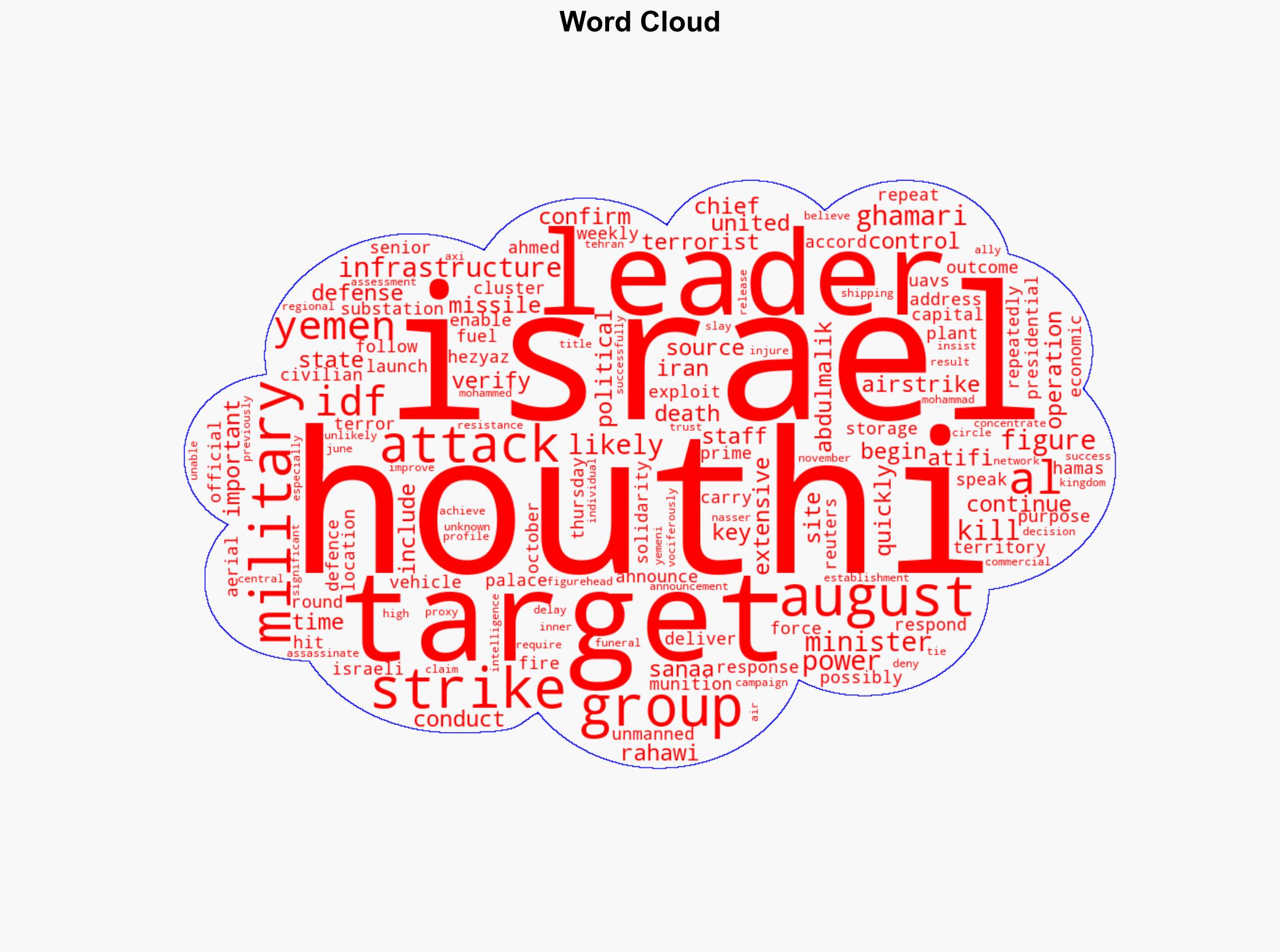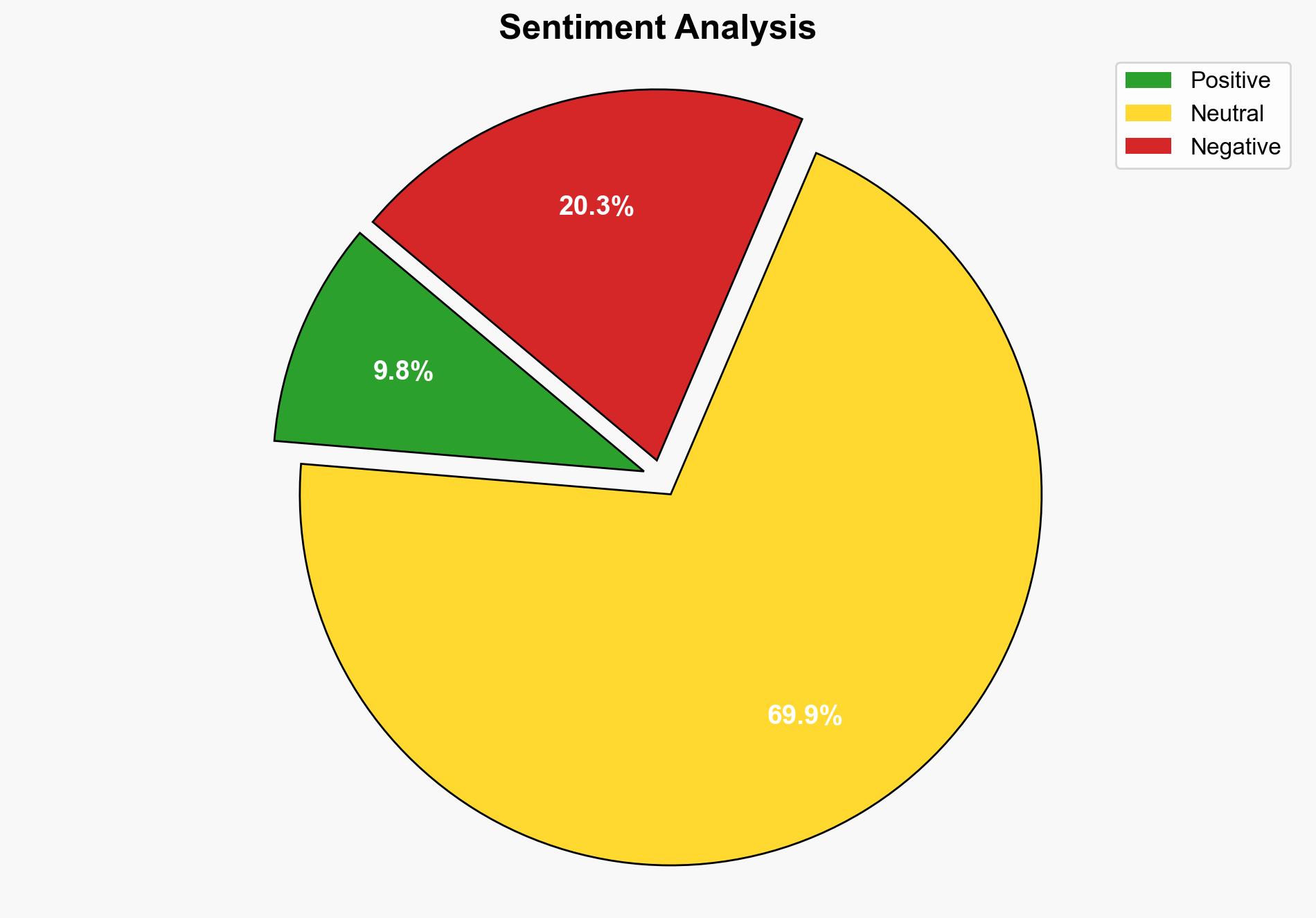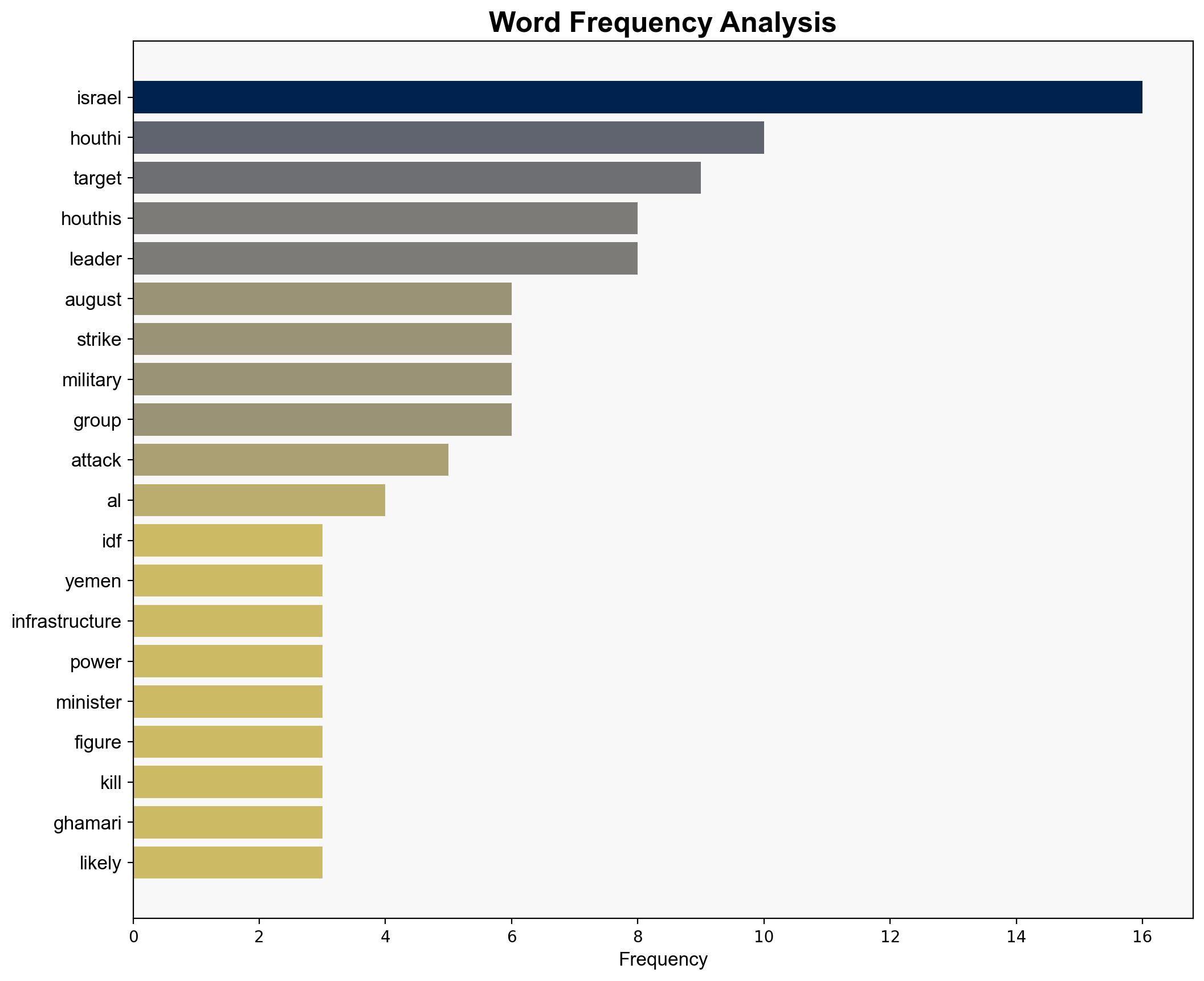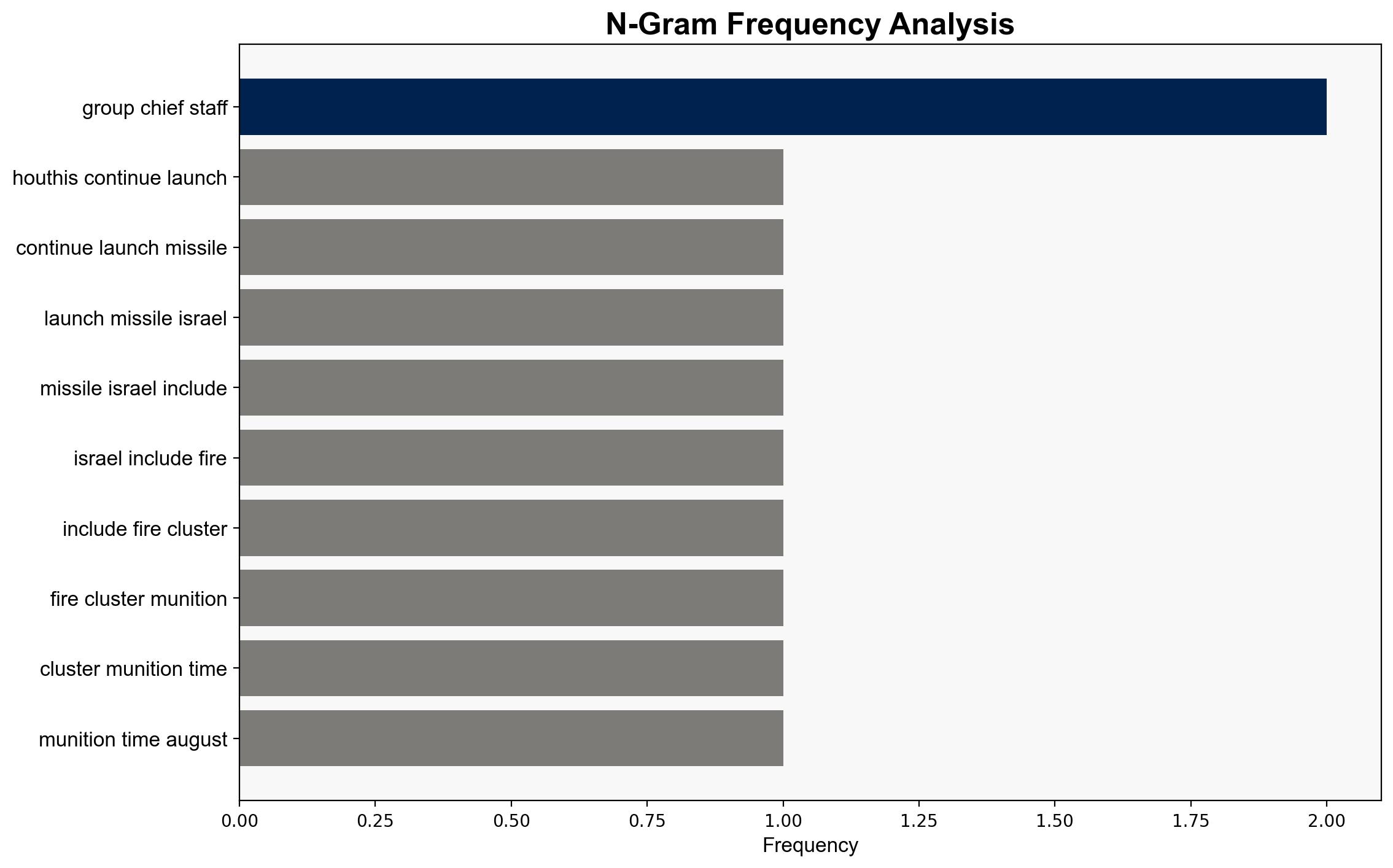Israel strikes Sanaa amid continuing Houthi missile launches against Israel – Longwarjournal.org
Published on: 2025-08-29
Intelligence Report: Israel strikes Sanaa amid continuing Houthi missile launches against Israel – Longwarjournal.org
1. BLUF (Bottom Line Up Front)
The most supported hypothesis suggests that Israel’s strikes on Houthi targets in Sanaa are primarily aimed at degrading the Houthi’s military capabilities and deterring further missile attacks on Israel. Confidence in this assessment is moderate due to the complex regional dynamics and potential Iranian influence. It is recommended that Israel continues to monitor Houthi activities closely and strengthens intelligence-sharing with allies to preempt further escalations.
2. Competing Hypotheses
1. **Hypothesis A**: Israel’s strikes are a direct response to Houthi missile launches, aimed at degrading their military capabilities and deterring future attacks. This hypothesis is supported by the IDF’s statements and the targeting of military infrastructure.
2. **Hypothesis B**: The strikes are part of a broader strategy to counter Iranian influence in the region, using the Houthi attacks as a pretext. This is supported by the known ties between the Houthis and Iran, as well as the strategic targeting of key Houthi leaders with connections to Iranian networks.
Using ACH 2.0, Hypothesis A is better supported due to the direct correlation between Houthi attacks and Israeli responses, as well as the specific targeting of military sites.
3. Key Assumptions and Red Flags
– **Assumptions**: It is assumed that the Houthi missile launches are primarily motivated by solidarity with Hamas and not solely directed by Iranian interests.
– **Red Flags**: The lack of confirmed outcomes from the strikes and the Houthis’ denial of successful targeting of their leaders could indicate information manipulation or incomplete intelligence.
– **Blind Spots**: Potential underestimation of Iran’s direct involvement or influence over Houthi actions.
4. Implications and Strategic Risks
The ongoing conflict risks escalating into a broader regional confrontation, particularly if Iranian involvement is more direct than currently assessed. There is also a risk of increased attacks on commercial shipping routes, which could disrupt global trade. Cyber retaliation by Iran or its proxies is a potential threat, targeting critical infrastructure in Israel or its allies.
5. Recommendations and Outlook
- Enhance intelligence-sharing with regional and global partners to improve situational awareness and preempt potential escalations.
- Strengthen cyber defenses to mitigate potential retaliatory attacks.
- Scenario Projections:
- Best Case: Successful deterrence of further Houthi attacks, leading to de-escalation.
- Worst Case: Escalation into a broader conflict involving multiple regional actors.
- Most Likely: Continued tit-for-tat exchanges with periodic escalations.
6. Key Individuals and Entities
– Abdulmalik al-Houthi
– Ahmed al-Rahawi
– Mohammad al-Ghamari
– Mohammed Nasser al-Atifi
7. Thematic Tags
national security threats, cybersecurity, counter-terrorism, regional focus




